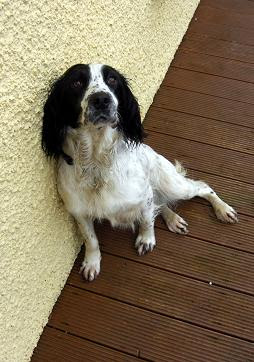“There is no way I want to stay a mere human.”
Dr Kevin Warwick
Dr Kevin Warwick is a British scientist and professor of cybernetics at the University of Reading. He left school at 16 but went back to University at the age of 22. He has been doing experiments on cybernetics and robotics. He is the first person (outside science fiction) to actually become a cyborg. A cyborg is a word for a cybernetic organism (part organic, part machine). He is interested in how artificial intelligence can be used to improve humanity and feels that humans are limited in their sense perceptions.
At the risk to his own life, Dr Warwick in Project Cyborg 1.0 (1998) got an implant embedded in his arm. It had a signal unique to his individual requirements and Dr Warwick was able to operate doors, heaters and computers without lifting a finger. This has implications for people who have disabilities. In another experiment Project Cyborg 2.0 (2002), he got a different implant put in. This interfaced with his nervous system and meant that he could control things such as the movements of a robotic arm through thought alone. This is even more amazing when you consider that the robotic arm was on the other side of the world to him. He could also feel pressure that was put on the arm.
Kevin Warwick is at heart an adventurer. He believes that humans need to evolve. By using the technology of silicon chips he feels we can enhance our senses. For example we could be able to see in X-ray, infra-red or up to 8 dimensions. He thinks in future we will not need to communicate through speech but simply through thought alone. He feels speech is a slow and prone to error method of communication. Kevin Warwick sees technology as being more advanced than human beings and that artificial intelligence could take over decisions and eventually be in control of humans because computers can make better and faster decisions. Science fiction points to the dangers of a situation where this might happen and that inspires Dr Warwick to research cybernetics. He wants to be part of a new humanity, what he would see as a better and more evolved humanity. One day he thinks that humans will choose to get upgraded and have enhanced abilities through implants. People can choose whether or not to become a cyborg, but if they didn’t they would be to the new human cyborgs what chimpanzees are to us now.
In Project Cyborg 2.0, Dr Warwick’s wife got a similar, although not as sophisticated chip put into her central nervous system. They were trying to find out whether they could speak to each other through thoughts alone, perhaps by using the internet. They will be looking at questions such as how will the brain adapt to unfamiliar information coming in through the nervous system.
People and animals are already starting to get microchips implanted, for example dogs and children whose parents are over protective and scared of abduction (particularly after the Madeline McCann case). It is thought that in the future these chips will be able to hold all sorts of information such as bank details, medical details and can be updated when necessary.
There are all sorts of ethical questions and Warwick (or Captain Cyborg as the papers call him) works closely with a woman called Danniella Cerqui who is an expert on ethics. It raises the whole question of what it might mean to be human and conscious.
When Dr Warwick heard John Searle’s view that a shoe is not conscious therefore a computer cannot be conscious, he responded by saying “that by the same sort of analogy though, a cabbage is not conscious therefore a human cannot be conscious.”
So what might it be like in the future? Would you get an enhancement to see more clearly, hear better or lift heavier things? Will the world be even more divided into haves and have-nots as this technology may not be cheap? What if we have to have chips in order to get our money? Does having a single implant make you a cyborg? What if an enemy power could use this technology against us by causing death to us through malfunctioning chips?
Progress can never really be halted and people will always use technology to their own ends whether we may judge it good or bad. It looks like this technology will be the way of the future.

